![]()
Sun, Aug 08, 2010 | Intelligence and Terrorism Information Center

Report on the Hamas website about a so-called “strategic” interview granted by Khaled Mash’al to Al-Sabil, the Muslim Brotherhood organ in Jordan (July 21, 2010). It is our assessment that the photograph of Hamas founder Sheikh Yassin in the background is meant to provide ideological validity to Mash’al’s statements (Palestine-info, August 3, 2010).
Hamas Leader Khaled Mashaal Presented Ideological and Strategic Concept Based on Jihad Against Israel
Hamas leader Khaled Mash’al has recently presented Hamas’ ideological and strategic alternative to the PA’s approach towards the Israeli-Palestinian conflict. He slammed the PLO leadership, denied the legitimacy of Israel, ruled out the negotiations with it in their present form, and called to follow the path of jihad and armed struggle
Overview
1. Hamas’ political bureau chief Khaled Mash’al recently gave a belligerent, aggressive speech at the graduation ceremony of a summer camp organized by Ahmed Jibril’s PFLP-General Command in Damascus. In his speech, he called to continue jihad and the armed struggle, slammed the leadership of the PLO and the PA (“thugs”, “stuck on the path of negotiations”), and categorically denied any possibility of talks with Israel, claiming such negotiations would be illegitimate and could result in destruction and surrender to the Americans (see Appendix A for a summary of the speech).
2. Prior to that (July 21), Khaled Mash’al had granted a comprehensive programmatic interview (referred to on the Hamas website as “strategic”) to Al-Sabil, the Muslim Brotherhood mouthpiece in Jordan. In the interview, Mash’al discussed at length the issue of negotiations with Israel. He did not completely rule out negotiations “under certain circumstances”; however, he strictly opposed any talks (direct or indirect) in the current timing. According to Mash’al, the Palestinians should start negotiations from a position of power, “the product of jihad and resistance”, by which Israel could be forced to accept the Palestinian conditions. The current negotiations, said Mash’al, have been forced by the US and Israel and serve Israel instead of the Palestinians (see Appendix B for details).
3. In the Al-Sabil interview, Khaled Mash’al also completely ruled out any recognition of Israel. He did not, however, rule out a possible long-term ceasefire with Israel that would not involve recognizing Israel (it is our assessment that this reflects Khaled Mash’al’s attempt to set Hamas apart from Al-Qaeda and other radical jihad organizations).
4. He expressed Hamas’ keen interest in opening itself up to all the world’s countries and improving its foreign relations, provided it would not be contingent upon recognition of Israel. According to Mash’al, Hamas is aware of the fact that its refusal to recognize Israel and accept the Quartet’s conditions has a political price; however, that’s a price Hamas is ready to bear. Mash’al’s assumption is that, in the long run, Western countries and the international community as a whole will eventually need to cooperate with Hamas—that is, after they realize that reconciliation with Arab regimes has only short-term effects (see Appendix B for details).
5. It is likely that Khaled Mash’al’s belligerent rhetoric in the speech given to the summer camp graduates in Damascus was also motivated by the decision of the Arab League’s Monitoring Committee for the Arab Peace Initiative to endorse direct Israel-PA talks. Khaled Mash’al’s speech, and the interview to Al-Sabil, are a challenge by Hamas to the views of the PA, the Arab League, and pragmatic Arab countries, offering Hamas’ ideological and strategic alternative based on the path of jihad and “resistance” as a major factor in the conflict with Israel (even though Hamas does not completely rule out negotiations with Israel, provided they are conducted under the appropriate circumstances and from a Palestinian position of power).
6. The statements made by Khaled Mash’al are geared towards internal target audiences sharing a similar ideological concept (the Muslim Brotherhood in Jordan) and a strategic stance based on jihad (the PFLP-General Command). The extremist, at times belligerent rhetoric directed by Khaled Mash’al towards those target audiences starkly contradicts the softened rhetoric (“smile attack”) he and other Hamas spokesmen often employ in interviews granted to Western media. In those interviews, Hamas spokesmen attempt to play down or conceal the ideology and strategy striving for the elimination of the State of Israel by means of terrorism (jihad, “resistance”), put up a pragmatic façade, attempt to market the idea of long-term ceasefire (mentioned by Mash’al in the interview granted to Al-Sabil), and portray the Palestinians as perpetual “victims” of the “aggression” of Israel and “regional and international forces”.[1]
7. Statements made by Khaled Mash’al (and other Hamas spokesmen) strongly reflect the tension between Hamas’ fundamental extremist views and its desire to improve relations with Western countries, achieve recognition of the movement itself and its administration at the expense of the PA, and to undermine the legitimacy of the State of Israel on the international scene (taking advantage of events viewed by Hamas as successful, such as the flotilla). At this point, however, it is the ideological foundations that have the upper hand in the struggle between radical Islamic ideology and pragmatic needs. In the interview granted to Al-Sabil, Khaled Mash’al stresses that despite the significance Hamas ascribes to broadening its international relations, it categorically refuses to accept the conditions stipulated by the Quartet, mainly recognition of Israel, being aware of the political price that comes with that refusal.
Appendix A
Summary of the speech given by Khaled Mash’al at the graduation ceremony of a summer camp organized by Ahmed Jibril’s PFLP-General Command (Al-Jazeera, August 2, 2010)
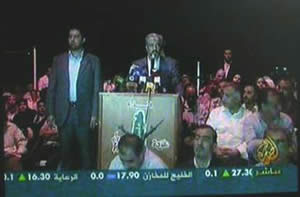
Khaled Mash’al speaking at the graduation ceremony of the summer camp organized by the PFLP-General Command (Al-Jazeera, August 2)
1 . On August 2, 2010, Khaled Mash’al gave a belligerent, aggressive speech at the graduation ceremony of a summer camp in Damascus organized by Ahmed Jibril’s PFLP-General Command. In the speech, he called to continue following the path of jihad and “resistance” (i.e., violence and terrorism) against Israel and expressed complete refusal to directly or indirectly negotiate with it.
2 . Following are the main points mentioned by Khaled Mash’al in his speech (Al-Jazeera, August 2):
a. Mash’al praised the summer camp graduates, saying they reflected the spirit of jihad, sacrifice, and struggle. “This is the way,” he said, “these camps, this younger generation, this gun, this training, these tents, these [training] grounds, this skill in using arms,[2] this khaki-colored military uniform, this is the path…”
b. Mash’al ruled out the path of negotiations with Israel: “This path,” according to Mash’al, “will not lead to Palestine. Perhaps it will lead to Washington, perhaps it will lead to destruction, but it will certainly not lead to Palestine…” He further added, “there is no legitimacy for the Israeli-Palestinian negotiations, be they direct or not, for such negotiations have been forced by the Americans and resulted from Israeli pressure.”
c. Mash’al proceeded to lash out against the PLO leadership for choosing the option of negotiations: “You thugs are stuck in the path of negotiations, and it is here that the independent decision is made under the protection offered by the gun”. According to Mash’al, that is the option that must be adhered to (i.e., “the protection by the gun”), even though some Palestinian organizations have strayed from it to choose the path of negotiations.
d. On Hamas’ commitment to the path of jihad: “We are not concerned about being called terrorists, since if our jihad is considered terrorism, then the detractors can say whatever they want. We are going to stick to jihad, resistance, and guns as the path towards liberation and return”. Khaled Mash’al once again stressed the adherence to the “option of resistance” and the “option of the gun” since “that is our path of might and honor”.

“This is the way,” he said, “these camps, this younger generation, this gun, this training, these tents, these (training) grounds, this skill in using arms, this khaki-colored military uniform, this is the path…” (Khaled Mashaal, Al-Jazeera, August 2).
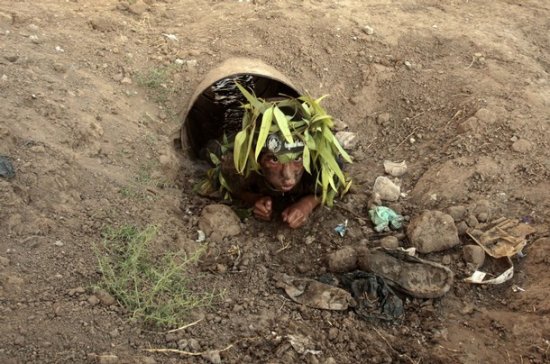
Khaled Mashaal praised the summer camp graduates, saying they reflected the spirit of jihad, sacrifice, and struggle (Al-Jazeera, August 2).
Appendix B
Interview granted by Khaled Mash’al to the Muslim Brotherhood organ in Jordan
1. On July 21, 2010, Al-Sabil, the Muslim Brotherhood organ in Jordan, published a comprehensive programmatic interview with Khaled Mash’al, defined on the Hamas website as a “strategic” interview. It was conducted by reporters Atef al-Julani and Hamza Timour. In the interview, Khaled Mash’al discussed at length the conflict with Israel, mainly the issue of its recognition and conducting negotiations with it. Following is a summary of the main issues discussed by Mash’al.
2. In the beginning of the interview, Khaled Mash’al was asked whether Hamas was opposed in principle to negotiations with Israel. He replied as follows:
a. In principle, there is no question that negotiations with enemies cannot be ruled out either legally or logically, particularly when there are temporary halts in the conflict which may call for negotiations. He added that negotiations in a conflict are acceptable and may be a legitimate tool under some circumstances (just as it might be unacceptable in others). He noted that negotiations with the enemies were held even at the time of Prophet Muhammad and Saladin; “However, [those negotiations were] part of a clear concept, a well-defined philosophy, and clear rules…” The main idea of that concept, which, according to Mash’al, is based on the Quran, is that negotiations must not be conducted as the only alternative, and must only be launched with “good bargaining chips”, “stemming from jihad, resistance, and might” (otherwise it is tantamount to surrender, according to Mash’al).
b. As far as the conflict with Israel is concerned, “the situation is different”. The difference being that Israel is an “alien entity planted in the region” which forced itself on its residents. Accordingly, that complicated and complex reality must be dealt with “in a precise, sensitive manner”. Even in such a reality, Khaled Mash’al does not completely rule out the possibility of negotiations with Israel. However, he says that such negotiations must only be conducted “when the time is right”, when it becomes necessary, when a “satisfactory level of balance and relative equality” has been achieved, and provided that the negotiations are a “tactical tool” as opposed to a “goal or permanent situation or strategic option”. Under such conditions, handled carefully, with “assertive rules” and at the right time, negotiations may prove useful; otherwise they would “only result in surrendering to the enemy and their conditions”.
c. As a result of that fundamental worldview, Khaled Mash’al strongly lashes out against those who negotiate on behalf of the Palestinians (i.e., the PA) and those Arabs who support the peace process (i.e., the Arab League and the pragmatic Arab countries). Mash’al lists a number of instances of what he considers as flaws in the negotiations as they are currently conducted. The major flaw is that the negotiations are conducted without the necessary “bargaining chips”, which would make it possible to force the enemy to accept the Palestinian conditions. In that context, Khaled Mash’al slams the negotiators with Israel over saying that they want peace and recognize Israel (recognition which was achieved in exchange for recognizing the PLO rather than the “rights of the Palestinian people”). According to Mash’al, the Palestinian negotiator must stress that if the negotiations reach a dead end, the Palestinians will be ready to go to “war, attrition, or resistance”. In Khaled Mash’al’s view, “negotiations are no substitute for resistance and the strategy of confrontation with the [Israeli] occupation,” being the basis for managing the conflict with Israel.
d. At this time, “in view of the existing balance of power”, negotiations are a “wrong option” as it would serve Israel and not the Palestinian side. The weakness of the Palestinians and the “imbalance of power” allow Israel to use the negotiations as a tool to improve its status and image in the international community and as a means to “earn more time and create a new reality on the ground by building settlements, deporting residents, building Jewish neighborhoods in Jerusalem and destroying its [Arab] neighborhoods”. According to Mash’al, Israel also takes advantage of the negotiations for leverage to improve its relations with the Arab and Muslim world. Because of all those reasons, in Mash’al’s view, Israel is “the only party benefited by the negotiations in their present form”.
e. Arguing that the negotiations are ineffective, Mash’al issues a call to unite around the “project of resistance” (i.e., violence and terrorism). He stresses that it was no use “gambling” on the Americans (and others) on the Palestinian scene just as it was no use on the Iraqi, Afghan, and Iranian scenes (Iran in the Shah’s time). The alternative, according to Mash’al, is abandoning the program for (political) settlement and the Arab initiative, and strengthening the “resistance”, which is the tested, “true option”.
3. Other issues pertaining to the conflict with Israel which came up in Khaled Mash’al’s interview:
a. He completely rules out recognizing the legitimacy of Israel, even though Hamas does not ignore the fact that “there is an enemy called Israel”. In the view of Hamas, it is a “Zionist entity”, a “racist Zionist program which jeopardizes the interests of peoples and nations” and is a “foreign presence” in the Middle East. Khaled Mash’al stressed once again that the refusal to come to terms with the existence of the “Zionist entity” and to recognize its legitimacy are a “clear, definite principle of Hamas” and of the entire Palestinian people.
b. Hamas is in principle opposed to the conditions set by the Quartet and Western countries, even if those conditions are eased. That attitude is first and foremost the result of Hamas’ refusal to recognize Israel, while being ready to bear the price for it. Khaled Mash’al noted: “This is what we are telling them [the Western delegations]: even though we are determined to develop ties with you and open up to all the countries in the world, we will not plead or beg the West to recognize us as Hamas. We are not interested in that”. Hamas, according to Mash’al, “does not look for legitimacy from the outside” but rather strives “to achieve recognition of Palestinian rights by force”.
c. Mash’al also discussed the building up of Hamas’ international relations and the place of those relations on Hamas’ political list of priorities. He is aware of the need to “market the Palestinian cause” and make friends and supporters of “Palestinian rights”. He said that the “Turkish flotilla” affair exposed the “ugly face” of Israel and demonstrated that “human conscience can be roused for the Palestinians”. According to Mash’al, Hamas’ foreign relations have been successful, but “there’s still a long way to go”. In that context, Khaled Mash’al mentioned the relations with Russia, countries in Latin America, and several other countries in Asia and Africa. He added that there are “unofficial relations (“under the table”, as Mash’al puts it) with some countries, including the US, through former top officials, who have relations with Hamas with the knowledge of current top officials in their countries. Hamas would like to build such relations “carefully and judiciously”, and not to rush things, in order to make gains for the Palestinian cause.
d. When asked why the international community and Israel objected to the long-term ceasefire proposed by Hamas, Mash’al listed several reasons, including: the belief that the Arabs and the Palestinians are a defeated side; “more tempting” ideas brought up by Arab and Palestinian elements (such as recognition of Israel in exchange for a solution based on the borders of 1967); and expectations that the Arabs could be subdued using more pressure. In what was perhaps a signal to the US and the West, Khaled Mash’al boasted that Hamas’ positions were “tougher” than those of other elements; however, he added, when Hamas takes a position, it makes efforts to implement it on the ground. According to Mash’al, Western countries and global structures of power will eventually have to cooperate with Hamas—that is, when they realize that reconciliation with Arab governments and Arab top officials can only have short-term results.
Note:
[1] For a clear example of such softened rhetoric, download the September 23, 2009 Information Bulletin: “Ken Livingstone interviews Khaled Mashaal, a case study” [by the Intelligence and Terrorism Information Center].
[2] A skill apparently acquired during the summer camp.



 RSS
RSS

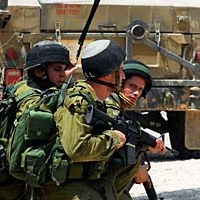
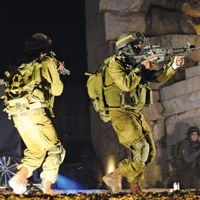


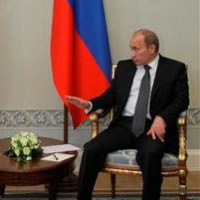




Hamas Leader Khaled Mashaal Presented Ideological and Strategic Concept Based on Jihad Against Israel #hamas #israel http://j.mp/9qvORA
Israeli cabinet minister Beni Begin discusses Israeli Palestinian negotiations. “The PLO platform, as reaffirmed in the Fatah Congress in August 2009, states that their struggle will not stop until the Zionist entity is eliminated and Palestine is liberated,” he says.
Click the link to view his entire article: http://tinyurl.com/2wqafqd
-Jerusalem Center for Public Affairs
RT @CrethiPlethi: Hamas Leader Khaled Mashaal Presented Ideological and Strategic Concept Based on Jihad Against Israel #hamas #israel http://j.mp/9qvORA